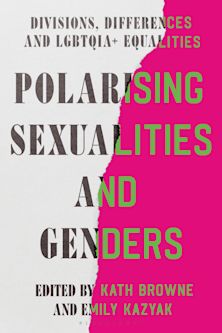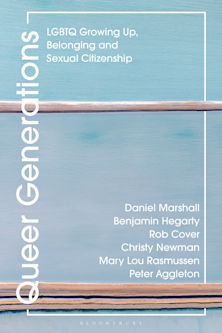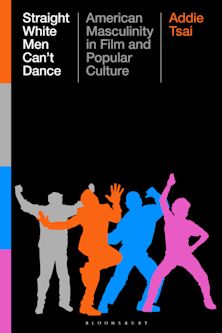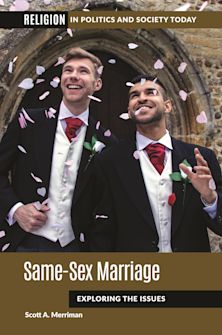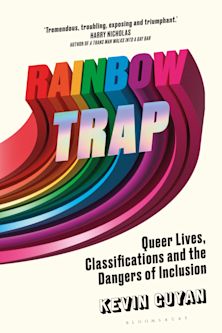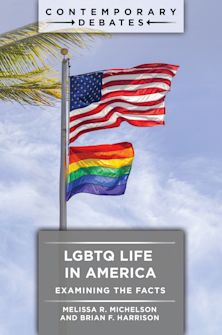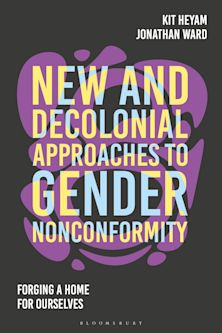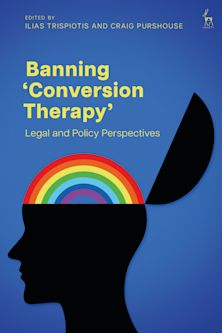- Home
- ACADEMIC
- Gender & Sexuality Studies
- LGBTQIA+
- Christianity and the Limits of Minority Acceptance in America
Christianity and the Limits of Minority Acceptance in America
God Loves (Almost) Everyone
Christianity and the Limits of Minority Acceptance in America
God Loves (Almost) Everyone
You must sign in to add this item to your wishlist. Please sign in or create an account
Description
This book explores the ways Christian women in college make sense of bisexual, transgender, polyamorous, and atheist others. Specifically, it explores the ways they express tolerance for some sexual groups, such as lesbian and gay people, while maintaining condemnation of other sexual, gendered, or religious groups. In so doing, this book highlights the limits of Christian tolerance for the advancement of minority rights.
Table of Contents
1. It Is God Who Works In You: Religious, Gendered, and Sexual Attitudes
2. Male and Female He Created Them: Christianity as Cisnormativity
3. And They Become One Flesh: Christianity as Mononormativity
4. The Fool Says In His Heart: Christianity as Religio-Normativity
Conclusion: So Are My Ways Higher Than Your Ways: Normativity and Emerging Movements in America
Product details
| Published | 27 Jul 2018 |
|---|---|
| Format | Ebook (Epub & Mobi) |
| Edition | 1st |
| Extent | 128 |
| ISBN | 9781498563000 |
| Imprint | Lexington Books |
| Illustrations | 2 tables; 6 graphs; |
| Series | Breaking Boundaries: New Horizons in Gender & Sexualities |
| Publisher | Bloomsbury Publishing |
About the contributors
Reviews
-
Scholars of religion, gender and sexualities, family, inequalities, and political sociology will benefit from this compelling volume. It will also strongly appeal to a general audience, including Christians who are interested in thinking through issues concerning sexual minorities. Overall, the book furthers our knowledge of the complicated ways that normative structures continue to shape reality for Christians living in an increasingly diverse world.
American Journal of Sociology
-
Sumerau and Cragun’s study of how religious people make sense of the increasing visibility of transgender, intersex, bi+, poly, and unchurched individuals in their midst fills a gaping void in our understanding of how traditional, established gender and religious norms continue to shape civic life in the United States. While a dominant narrative in the sociology of religion extols the limited acceptance of gay and lesbian people within Christendom, the authors show that beneath this veneer of progress there is unabated disdain for those outside mono-, hetero- and cisnormativities. The authors use ethnographic interviews to uncover the contours of this intolerance and describe how it is constructed and maintained. This is a timely, sophisticated, and essential contribution to the sociologies of religion and sexuality.
Rick Philips, University of North Florida
-
For decades, sociologists of religion and sexuality were stuck asking what American Christians thought about homosexuality. As Sumerau and Cragun illustrate, it’s time to ask new questions. The authors dig into topics usually left out by fellow sociologists of religion, exploring the far reaches of American Christian assumptions that privilege monogamy, monosexuality, and cisgender reality and that leave out bisexual, nonbinary, and nonreligious people. This timely book is a must read for understanding the complete landscape of religion and sexuality in contemporary America.
Kelsy Burke, University of Nebraska, Lincoln
-
Sumerau and Cragun’s pathbreaking study sheds light on the ideological assumptions that still inform much social research on attitudes—that male and female are two mutually exclusive categories, that sexual orientation must reflect this dichotomy, that religion is the sole source of morality, and being cisgender in lifelong monogamy is necessary to demonstrate it. They reveal that the stereotypes that used to hound gays and lesbians, of being immature, sick, and/or untrustworthy, have not gone away but been displaced onto less conforming categories of people: bisexuals, trans people, polyamorous people, and atheists. This provocative study is a must-read for anyone seriously committed to value-neutral social science, and could shift the paradigm for social science research.
Dawne Moon, author of God, Sex, and Politics: Homosexuality and Everyday Theologies

ONLINE RESOURCES
Bloomsbury Collections
This book is available on Bloomsbury Collections where your library has access.





















